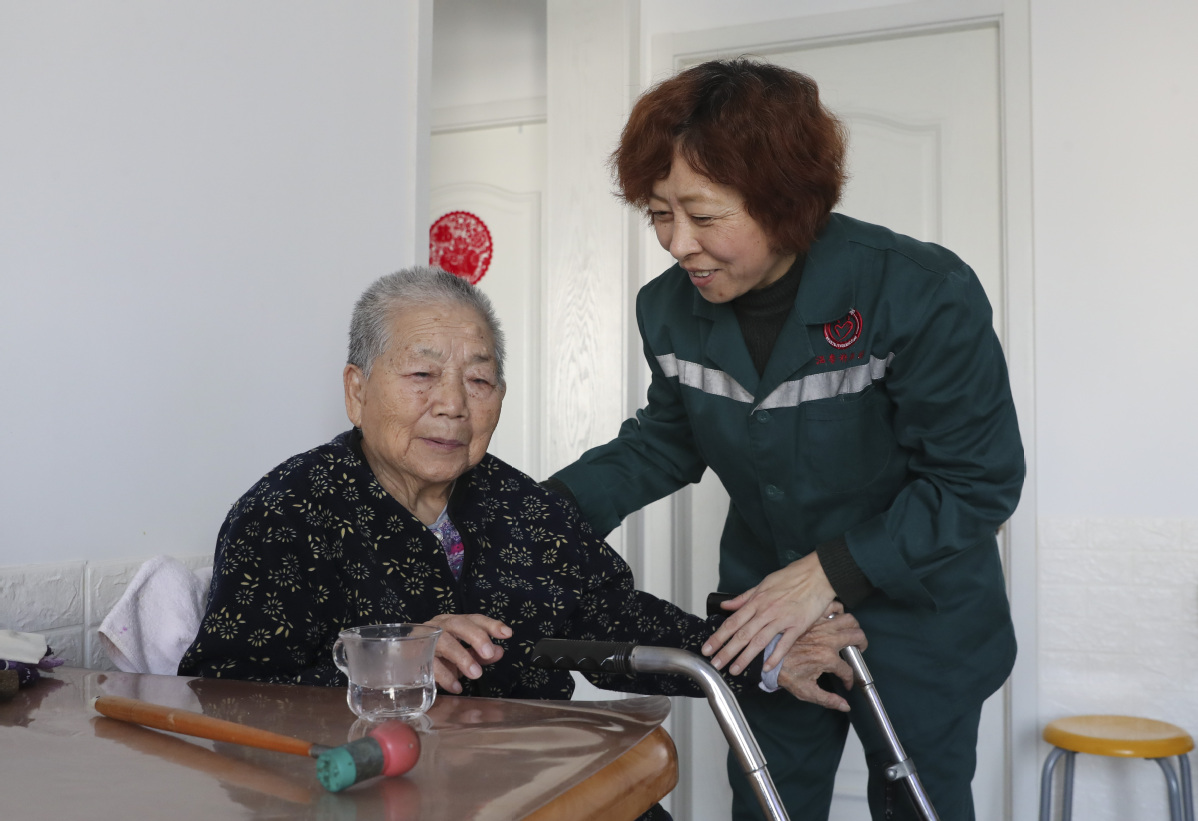Caregivers get a welcome break


Pilot in Fengtai district
"Many in the younger generation who took care of their elderly parents were exhausted after attending to their needs for a long period of time, and they were eager to take a break," said Xing Yinli, director of Jingkangyuan Nursing Center, one of the eight institutions in Beijing's Fengtai district that has provide dintermittent care for more than 1,200 seniors since the pilot program started.
"Some even said that they would rather not face their parents if it wasn't necessary," said Xing, describing the feeling that some middle-aged people expressed. Being a caregiver is just hugely time-consuming.
Fengtai district, located in the capital's southwestern area, had the highest proportion of elderly in Beijing, including more than 10,000 disabled seniors or those with dementia, according to the local civil affairs department.
And so it was a welcome relief when, in 2018, the first batch of around 400 seniors received respite care services either at home or in institutions by health care professionals in Fengtai.
Under Fengtai's regulations, any household with an elderly male over 60 years old can apply for the short-term care. The standard nursing expense is set at 220 yuan ($31) per day - all of it covered by the government.
"It's really a relief for me," said Song Xueying, who had taken care of her 92-year-old mother, Wang Shulan, at home for 15 years after her mother suffered a blood clot.
In the daytime, Song hardly left her mom. She mostly bathed and cleaned the elder woman herself. To stay close, Song took an apartment next to her parents' home.
Song had operated a chain restaurant before, but because of her mother's frail health, which required a person to attend to her continuously, she decided to stay at home.
"I was extremely worried that something would happen when I left them, so over the past decade, I chose to take care of them myself, doing the best I could," Song said. The 58-year-old has lumbar muscle strain herself and almost never has time to exercise.
Previously, Song had tried to employ a home care worker to assist her. But the high expense eventually killed the idea.
In January, her family welcomed a nursing worker provided by the respite care service program from Jingkangyuan Nursing Center. The worker provided short-term in-home, care four days a month free of charge.
"Some daily care activities, like cooking, washing hands or helping my mom take her medicine, were handled by another person instead of me, and I was very glad," Song said. "I love my mom so much, but increasingly, I feel I can't afford to shoulder the entire burden."




































